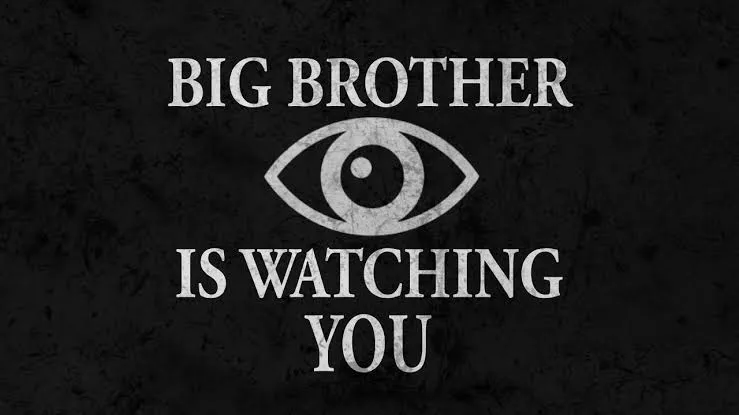Table of Contents
Thornton Blackmore
Information
Opinion
Throughout the ages, the struggle between rulers and their subjects to establish the status quo in one’s own favour has given rise to periods of both despotism and democracy, with various shades of governance in between. And as the world now simmers like a frog in what was once a tepid bath, it seems that we are witnessing yet again the rise of totalitarianism.
The resurgence of this style of regime, which is so ambitious and so persistent, is one against which every man and woman must rally for the sake of future generations, should the need arise within their lifetime.
And so today it seems that, on the plea of a manufactured crisis, the status quo is again being challenged. Our essential freedoms have been marked as collateral in exchange for the promise of safety. And the brokers negotiating for our capitulation are not the kind who take ‘no’ for an answer.
Finding ourselves outgunned but not outnumbered, we must now reckon with the armaments of the surveillance state, where information and manipulation are the smoking barrels of a new kind of warfare.
After years of innovation and refinement, the various arts, arms and artifices of authoritarianism are now being deployed as instruments of coercion in this great negotiation over the status quo. Indeed, the advancement of technology has bestowed upon the world dictatorship a God-like omniscience and omnipotence bolstered by the vision of a Fourth Industrial Revolution that now seeks to penetrate even to the cellular level of one’s own body.
This ever-shifting relationship between the state and the individual, albeit in a more primitive display of despotism, long predated today’s Orwellian reality. This phenomenon has been well documented by the notable historian and author Carroll Quigley, who was once a memorable influence for a young Bill Clinton at Georgetown University.
In his book Tragedy & Hope, Quigley divides society into six aspects, namely the military, political, economic, social, religious and intellectual. According to Quigley:
The military level is concerned with the organization of force, the political level with the organization of power, and the economic level with the organization of wealth. By the “organization of power” in a society we mean the ways in which obedience and consent (or acquiescence) are obtained.
The close relationships between levels can be seen from the fact that there are three basic ways to win obedience: by force, by buying consent with wealth, and by persuasion. Each of these three leads us to another level (military, economic, or intellectual) outside the political level.
Commenting on submission to the status quo as negotiated by force, Quigley remarks:
On the military level in Western Civilization in the twentieth century the chief development has been a steady increase in the complexity and the cost of weapons. When weapons are cheap to get and so easy to use that almost anyone can use them after a short period of training, armies are generally made up of large masses of amateur soldiers. Such weapons we call “amateur weapons,” and such armies we might call “mass armies of citizen-soldiers.”
The Age of Pericles in Classical Greece and the nineteenth century in Western Civilization were periods of amateur weapons and citizen-soldiers. But the nineteenth century was preceded (as was the Age of Pericles also) by a period in which weapons were expensive and required long training in their use. Such weapons we call “specialist” weapons. Periods of specialist weapons are generally periods of small armies of professional soldiers (usually mercenaries).
The emergence of musketry, for example, once secured advantages for the ruling minority, though with the progress of industrialisation and mass production, firearms soon became cheaper, simpler to handle and more widely available – thus shifting the balance of power back in favour of the commoner.
In a period of specialist weapons the minority who have such weapons can usually force the majority who lack them to obey; thus a period of specialist weapons tends to give rise to a period of minority rule and authoritarian government.
But a period of amateur weapons is a period in which all men are roughly equal in military power, a majority can compel a minority to yield, and majority rule or even democratic government tends to rise.
Indeed throughout history, covetous regimes have always preferred an unarmed populace in order to establish the status quo in their favour – whether this be feudal Japan’s prohibition of sword-bearing by the peasantry or today’s gun seizures, enacted on the basis of some false-flag incident, by Western so-called democracies.
It was for this very reason that the Second Amendment of the US Constitution was included to secure the status quo in the favour of the American people. Nations of comparable demographics and development such as Australia, which lack these constitutional protections, have not fared as well as the United States in maintaining the status quo in this great negotiation with the world dictatorship.
Today’s awakening populace, which grapples with the apparatus of the deep state, should remember that the aforementioned principles are as true to the conventional as they are to the unconventional and that our struggle today may be analysed by the same set of advantages. As the political will relies upon its corollaries in the achievement and maintenance of power, so do we see the militarisation of the civilian realm in this unconventional contest over the status quo.
All aspects of our world, including money, media and even medicine, are fast becoming ‘specialised’ through centralisation, digitisation, monopolisation and censorship – with the same consequences aforementioned by Professor Quigley.
It is now up to the ordinary man and woman to secure the status quo.









